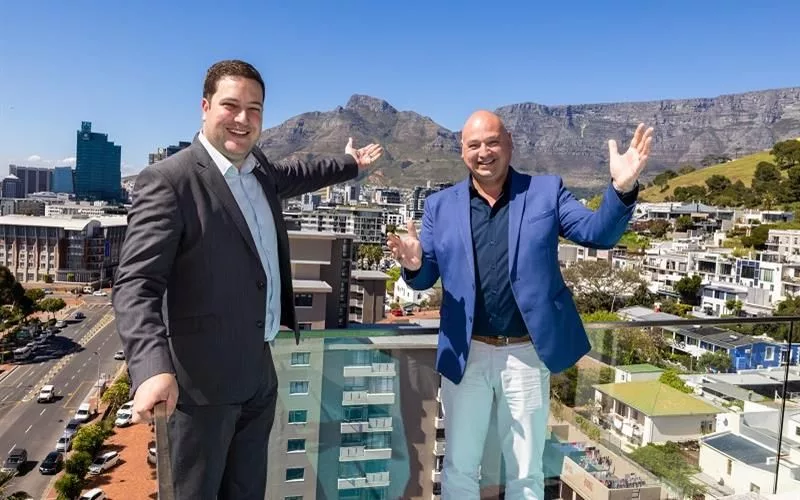The root of the conflict in the Bongi Mbonambi and Tom Curry Controversy is a linguistic misunderstanding, and the incident raises critical questions about language and cultural understanding in international sports and the media’s responsibility for accurate reporting and contextualizing such incidents. The controversy has sparked heated discussions about race, language, and media narratives in shaping public opinion. Despite the ongoing investigation and uncertainty surrounding the incident, the controversy has fostered solidarity among many South Africans, illustrating the power of sports to unite people.
What is the Bongi Mbonambi and Tom Curry Controversy?
The controversy involves allegations of Bongi Mbonambi using a racial slur during a semi-final match between South Africa and England, which Tom Curry believed to be “white c**t.” The incident has sparked heated discussions about race, language, and media narratives in shaping public opinion in the context of international sports events. The root of the conflict is a linguistic misunderstanding, which has led to Mbonambi facing criticism and abuse. The incident raises critical questions about language and cultural understanding in international sports and the media’s responsibility for accurate reporting and contextualizing such incidents.
Unraveling the Linguistic Misunderstanding
The world today navigates the fine line between information and misinformation, making incidents like the recent controversy involving South African rugby player Bongi Mbonambi and English rugby player Tom Curry the center of heated discussion. The discourse revolves around race, language, and the role of media narratives in shaping public opinion.
The controversy began when, during the semi-final match between South Africa and England, Curry accused Mbonambi of using a racial slur. This alleged comment, which Curry believed to be “white c**t,” quickly gained traction in the UK media and subjected Mbonambi to criticism and abuse. South Africans have firmly defended Mbonambi, claiming that the comments were misheard and misunderstood.
The root of this conflict is a linguistic misunderstanding, exacerbated by the strong emotions that accompany international sports events. Mbonambi, an Afrikaans speaker from the Free State, likely used the phrase “wit kant” or “wyd kant,” which translates to “white side” (referring to the English team) or “wide side.” Despite this explanation, the controversy rages on.
The Aftermath and Reactions: Legal Action and Media Responsibility
Rugby fans’ reactions on social media platforms demonstrate the deep divisions and resentments fueled by this misunderstanding. Numerous South Africans have urged Mbonambi to take legal action against Curry and the English rugby team for defamation. Others have called for apologies from Curry and various UK media outlets.
Mbonambi faces consequences beyond public opinion. World Rugby, the sport’s international governing body, has launched an official investigation into the allegations. Mbonambi has also made his social media accounts private to avoid further harassment. In response to the situation, the South African Rugby Union has issued a statement recognizing the seriousness of the allegations and vowing to engage with Mbonambi if evidence supports the claims.
This scenario prompts critical questions about language and cultural understanding in international sports and the media’s responsibility for accurate reporting and contextualizing such incidents. Misunderstandings are inevitable in our interconnected world, but social media’s speed and reach can magnify their consequences.
The Importance of Context and Empathy in International Sports
The Mbonambi-Curry controversy serves as a reminder of the pitfalls of making assumptions based on limited information and cultural biases. The intense debate underscores the significance of context, empathy, and open communication in navigating the intricate dynamics of international competition.
Amid the contentious situation, some commentators have observed a silver lining: the incident has reportedly united South Africans of all races in support of Mbonambi. One Twitter user (@BohemianArtChic) wrote, “@WorldRugby An apology must be issued to Bongi and South Africa… we are truly hurt by the accusations of racism by the English… this, however, has united South Africans of all races.”
Despite the ongoing investigation and the uncertainty surrounding the incident, it seems the controversy has fostered solidarity among many South Africans. This unity illustrates the power of sports to unite people, even in the face of adversity and misunderstanding.
Lessons Learned: Language, Culture, and Media Narratives
As the rugby community awaits the results of World Rugby’s investigation, the Mbonambi-Curry incident offers a cautionary tale about the power of language, the dangers of cultural miscommunication, and the media’s role in shaping narratives. The truth behind the alleged comment may never be entirely known, but this incident has left an indelible mark on rugby history and the intricate relationship between sports, culture, and communication.
How did the Bongi Mbonambi and Tom Curry Controversy start?
The controversy started when Tom Curry accused Bongi Mbonambi of using a racial slur during a semi-final match between South Africa and England. Curry believed the slur to be “white c**t.”
What is the root of the conflict in the Bongi Mbonambi and Tom Curry Controversy?
The root of the conflict is a linguistic misunderstanding. Mbonambi, an Afrikaans speaker from the Free State, likely used the phrase “wit kant” or “wyd kant,” which translates to “white side” or “wide side.”
What are some of the questions raised by the Bongi Mbonambi and Tom Curry Controversy?
The controversy raises critical questions about language and cultural understanding in international sports and the media’s responsibility for accurate reporting and contextualizing such incidents.
How did people react to the Bongi Mbonambi and Tom Curry Controversy?
Rugby fans’ reactions on social media platforms demonstrate deep divisions and resentments sparked by the incident. South Africans have urged Mbonambi to take legal action against Curry and the English rugby team for defamation. Others have called for apologies from Curry and various UK media outlets.
What are the consequences of the Bongi Mbonambi and Tom Curry Controversy?
World Rugby has launched an official investigation into the allegations. Mbonambi has also made his social media accounts private to avoid further harassment.
What lessons can be learned from the Bongi Mbonambi and Tom Curry Controversy?
The incident offers a cautionary tale about the power of language, the dangers of cultural miscommunication, and the media’s role in shaping narratives. The controversy illustrates the significance of context, empathy, and open communication in navigating the intricate dynamics of international competition.
How has the Bongi Mbonambi and Tom Curry Controversy affected South Africans?
The controversy has fostered solidarity among many South Africans, illustrating the power of sports to unite people, even in the face of adversity and misunderstanding.
What is the controversy about race, language, and media narratives in the Bongi Mbonambi and Tom Curry Controversy?
The controversy highlights how media narratives can shape public opinion surrounding race and language in international sports events.












